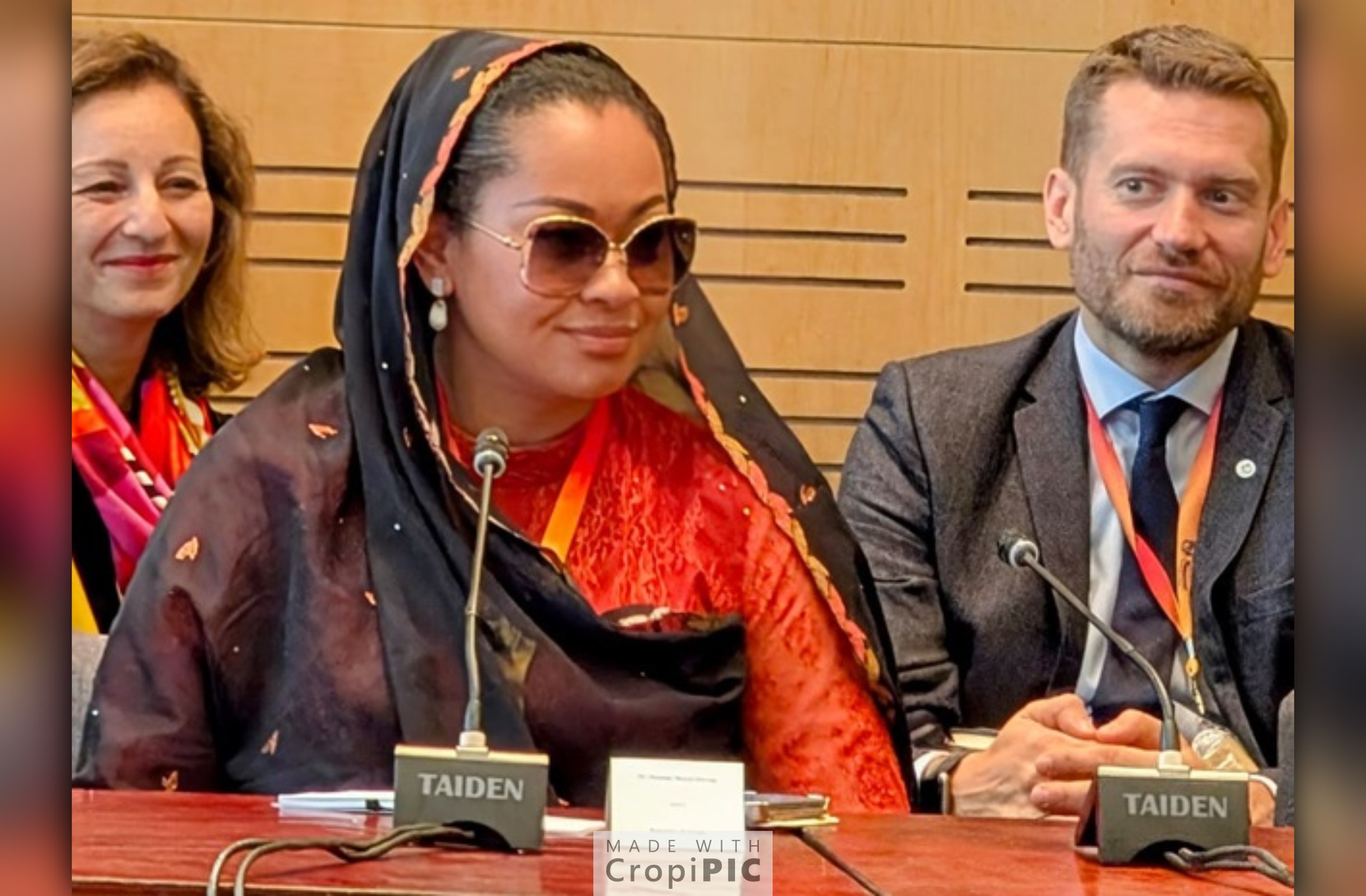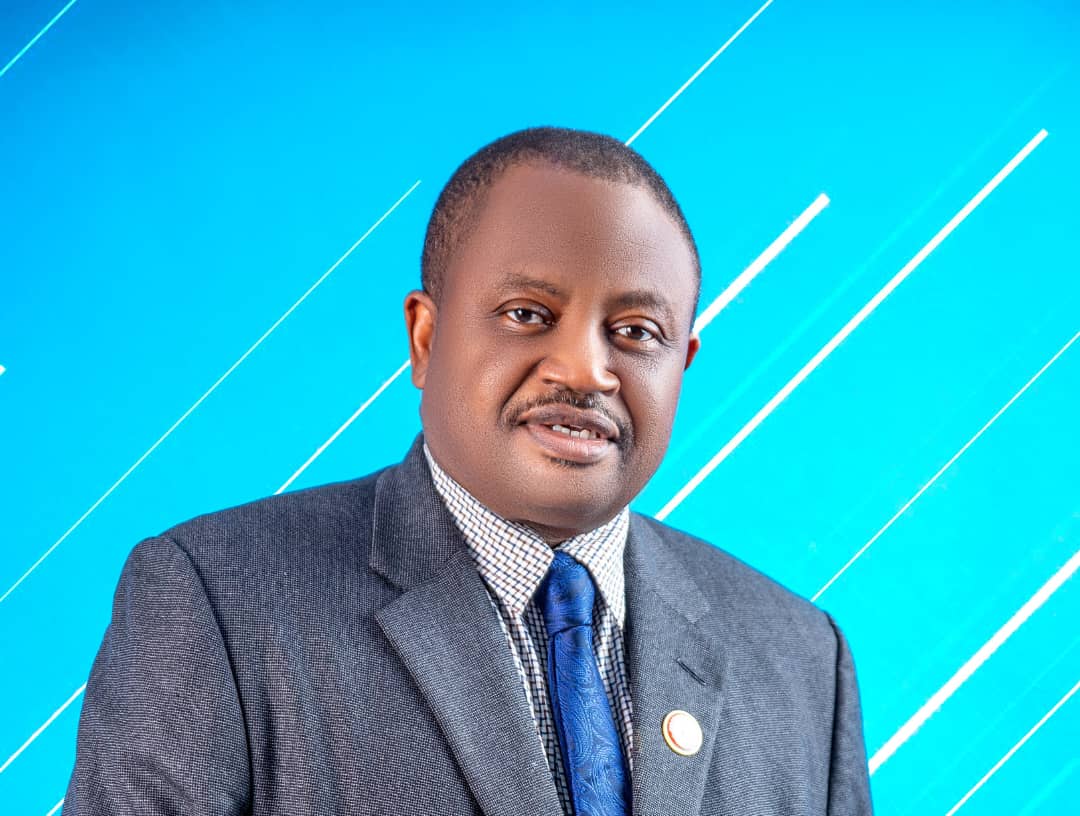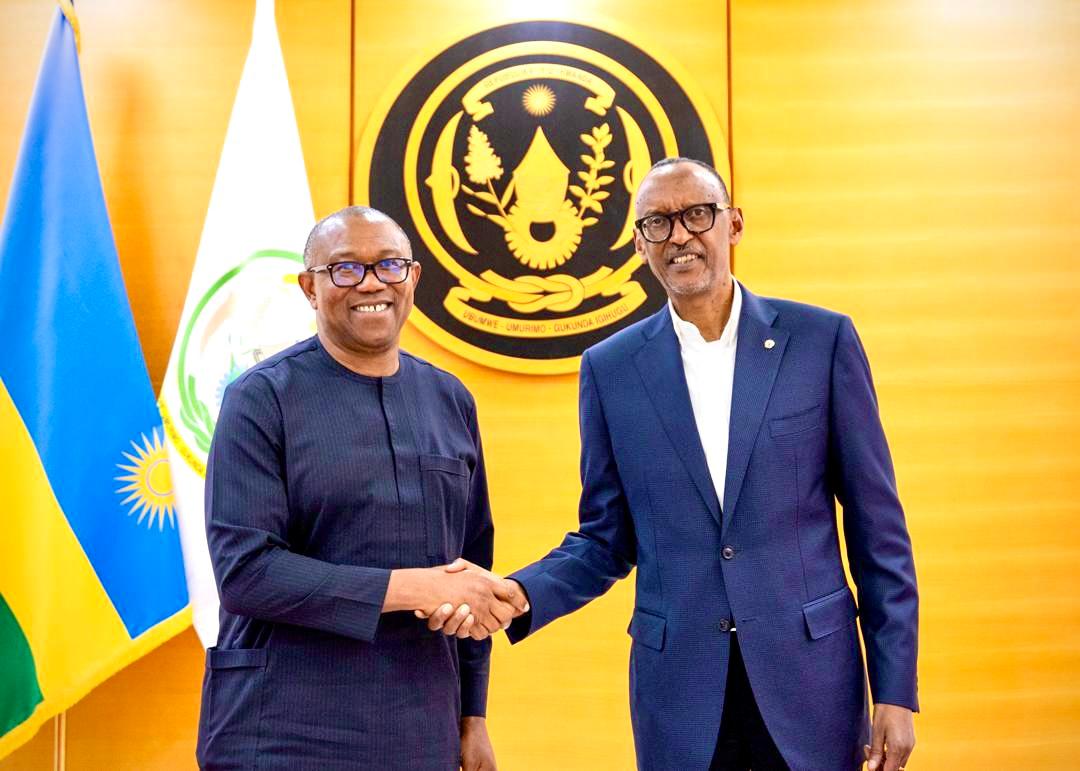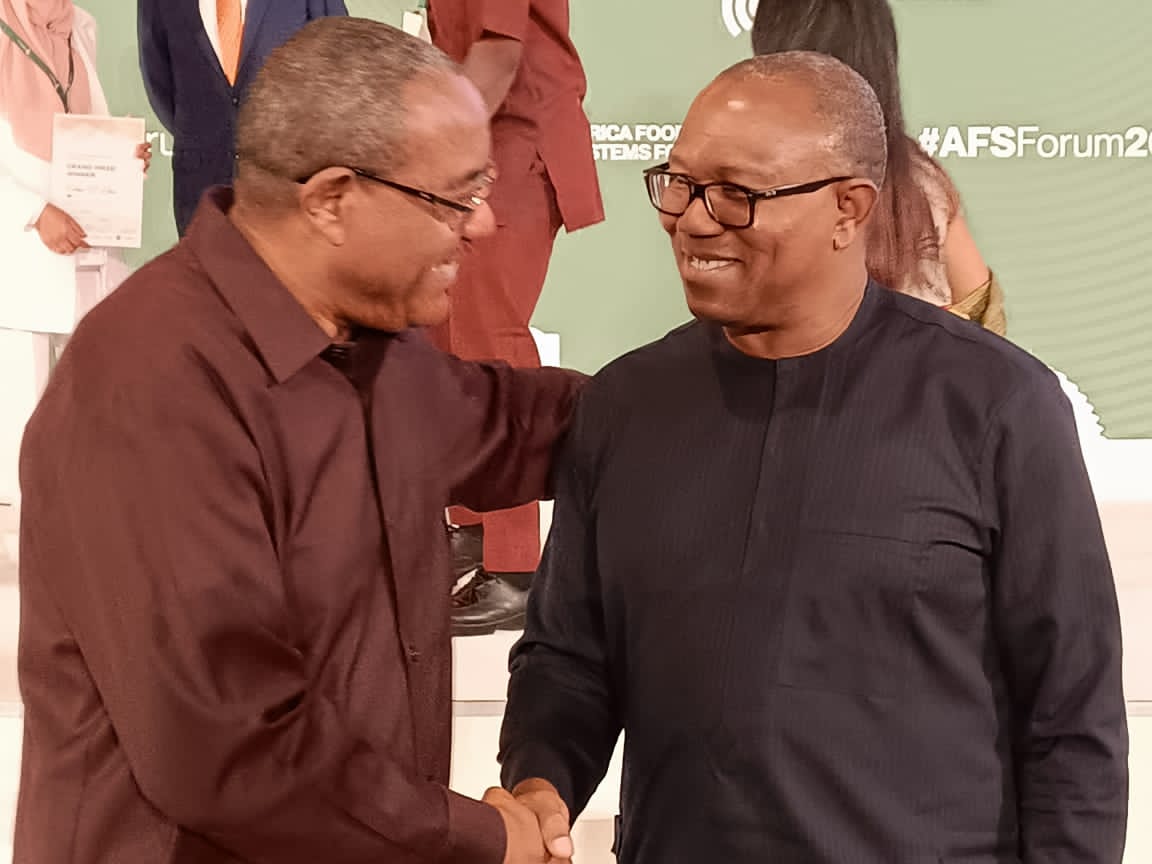Africa
Zimbabwe election: Timi Frank tackles AU, ECOWAS for silence over fraudulent outcomes
***warns that electoral coups always snowball into military coups
The alleged rigging of Presidential election in Zimbabwe by the ruling ZANU-PF party has been condemned by former Deputy National Publicity Secretary of the All Progressives Congress (APC), Comrade Timi Frank
Frank in a statement in Abuja, also accused the Heads of State and Governments of the African Union and indeed the Economic Community of West African States (ECOWAS) of eerie silence in the face of electoral injustice being meted on the opposition presidential candidate in Zimbabwe widely believed to have won the election.
Frank indicated that such electoral coups in the form of rigging often snowball into military coups and violent change of governments because of discontent and deep seated anguish of the people who have been denied the right to freely choose who to lead them by fraud and force.
He insisted that Zimbabwe’s President Emmerson Mnangagwa was declared winner in questionable circumstances following widespread irregularities orchestrated by the ruling party in instilling fear and suppression of votes in opposition strongholds.
He noted that candidate of the opposition Citizens Coalition for Change (CCC), Nelson Chamisa, was robbed of votes as attested by international observers and South African Regional body that monitored the election.
According to him, foreign poll monitors insisted that the elections had failed to meet regional and international standards just like the outcome of the February 25, 2023 presidential election in Nigeria that failed on all parameters due to overbearing influence of the ruling party and its use of financial inducements, intimidation and harassment of opposition and voters to deny Nigerians of their rightful choice.
The head of the European Union’s observer mission said the vote took place in a “climate of fear”, while Southern African regional bloc SADC’s mission raised issues including voting delays, issues with the voter roll, bans on opposition rallies and biased state media coverage.
“For example, voting was forced into an unprecedented second day because of delays in the printing of ballot papers in some key districts including the capital Harare, an opposition stronghold principally to deny Chamisa of votes,” he said.
He condemned a situation where African ruling parties are increasingly violating the electoral rights of the opposition parties and their candidates through rigging saying the trend will continue if measures are not taken to make African Heads of States to respect the sanctity of the ballot box.
He urged regional political blocs like the AU and ECOWAS to urgently call the President of Zimbabwe to order as a step towards curbing coup d’état now rearing its ugly head in many Africa countries like the recent one in Niger Republic.
“This is what African leaders are doing that is leading to military coups in the continent of Africa. An electoral coup has just taken place where the sitting President has outrightly rigged the election against the expressed will of the people.
“But neither African presidents nor AU has condemned what has happened in Zimbabwe. But if there is a military coup in Zimbabwe tomorrow, they will all begin to issue war threats in a bid to restore democratic rule,” he said.
He called on the United States of America, United Kingdom and other international bodies, to
lend their voice to condemn the electoral heist in Zimbabwe if they are genuinely interested in ending coups in Africa.
“So we are telling the international community that until they come together to make sure that African elections are transparent, free and fair, coups will not end in Africa,” he declared.
He called for urgent international sanctions against the President of Zimbabwe, Emmerson Mnangagwa and any President that rigs election in Africa to fraudulently perpetuate themselves in office against the wish of the people.
“The United Nations must ensure that henceforth Presidents or heads of governments that were rigged into office are not invited to attend its General Assembly or any of its international gatherings,” he said.
Africa
Senator Natasha Urges African Leaders to Invest in Energy Innovation for Continent’s Growth

The senator representing Kogi Central in the National Assembly, Senator Natasha Akpoti-Uduaghan, has called on African leaders to make financing energy innovation a top priority in order to secure the continent’s long-term growth and self-sufficiency in the energy sector.
Speaking at the ongoing African Energy Week conference in Cape Town, the Senator emphasized the importance of increasing local investment in energy technologies, which she sees as key to breaking Africa’s dependence on foreign imports and expertise. Her comments align with the International Energy Agency’s goal of doubling Africa’s energy investment to $200 billion annually by 2030—an investment that will help meet the continent’s climate targets while addressing its growing energy needs.
“Africa must take charge of its own energy destiny. The only way we can transform from being a continent that is exploited to one that leads in energy production is by driving innovation from within,” said Senator Akpoti-Uduaghan. “We need to prioritize research and development that produces technologies made on African soil. That way, we can keep the money that would have been spent on importing foreign equipment and experts within our own economies.”
The Senator’s remarks came during a panel discussion at the high-profile event, which is bringing together energy leaders, policymakers, and investors from across the continent to discuss the future of Africa’s energy sector. This year’s theme, “Financing Technical Innovation for Africa’s Energy Future,” highlights the need for investment in sustainable energy solutions, local manufacturing, and infrastructure development to support the continent’s rapid population growth and rising energy demand.
The call for greater local innovation in the energy sector is closely tied to the formation of the **Africa Energy Bank**, an initiative spearheaded by the African Petroleum Producers Organisation (APPO). The bank, which is set to launch in mid-2025, is designed to help reduce Africa’s reliance on foreign financing for energy projects, promote regional energy integration, and empower local economies by supporting homegrown energy businesses.
Senator Akpoti-Uduaghan applauded the establishment of the Africa Energy Bank, which she believes will play a critical role in financing African energy projects and encouraging the development of local technologies and expertise.
“This is a huge step in the right direction for Africa,” she said. “The Africa Energy Bank will help us take control of our resources and our energy future. By investing in energy innovation within the continent, we can create jobs, foster economic growth, and reduce our reliance on external funds and expertise.”
As part of her broader advocacy for energy independence, Senator Akpoti-Uduaghan has long pushed for policies that promote local content in Nigeria’s oil and gas industry. She reiterated the importance of strengthening African economies by focusing on local capacity building, technology development, and reducing the continent’s dependency on foreign investors.
“The future of Africa’s energy industry lies in local production and innovation,” she said. “We must stop seeing ourselves as merely consumers of technology, and instead, become the producers. Our research and development must focus on creating technologies tailored to the African context, ensuring we meet our energy needs sustainably.”
The African Energy Week conference has brought together policymakers, energy companies, and investors to address the continent’s energy challenges and explore solutions for transitioning to cleaner, more sustainable energy sources. One of the key goals of this year’s event is to increase investment in renewable energy technologies, as well as in oil and gas projects that can meet both Africa’s energy needs and its climate goals.
With global attention on Africa’s energy sector, Senator Akpoti-Uduaghan’s call for increased investment in local innovation resonates strongly, especially as the continent faces the dual challenges of expanding energy access while also addressing climate change. The proposed Africa Energy Bank is seen as a critical part of this strategy, helping Africa to finance its own energy future while empowering its communities and industries.
As discussions continue at the African Energy Week, the focus remains on how Africa can unlock its full energy potential, reduce reliance on foreign funding, and create an energy infrastructure that benefits all Africans. With the establishment of the Africa Energy Bank and a growing commitment to energy innovation, the continent is poised for a transformative shift in its energy landscape.
Africa
Africa awaits investiture of Prof. Zamani as President Pan African Psychology Union

By Friday Idachaba, Lokoja.
AFRICA is set to celebrate the investiture of Prof. Andrew Ezadueyan Zamani, a Nigerian, as new President of the Pan African Psychology Union as the body celebrates its 10th anniversary slated for next week in Johannesburg, South Africa.
Zamani is succeeding the Union’s founding President, Prof. Saths Cooper of South Africa and will be entering the exalted office with a wealth of experience from the academia and professional practice.
A statement from the Chairman, Nigerian Psychological Association FCT chapter, Mr Victor Adejoh, and made available to newsmen, eulogised the versatility of the expert in the practice of Psychology.
Adejoh, enthused by the elevation of his compatriot, Prof. Zamani, to the exalted office noted that the experience of the erudite Professor in related learned societies made him “nicely fit for this role.”
Prof. Zamani, he revealed, rejuvenated the once comatose Nigerian Psychological Association, led it for more than six years and emplaced its structure of growth and progress.
Adejoh hinted that this was after the Professor had served at various times as Treasurer and Assistant Secretary General of the Association adding that he served the association in different capacities.
“He has served the Association in several capacities, including Chairman, NPA League of Fellows; Chairman President – Elect, Search Committee; Chairman, NPA Fellowship Award Committee.
“In 2002, he convened the Association of Practicing Psychologists of Nigeria and used it as a platform to canvass for the gazetting of Psychology as a civil service profession in Nigeria, a feat that was finally clinched by the Nigerian Psychological Association.
“Today, Nigerian Psychologists have a scheme of service and career path in the polity”, Adejoh explained.
As the Pan African Psychology Union is set to celebrate its 10th anniversary in Johannesburg, South Africa between the 8-11th October, 2024, the body is set to roll out its drums to welcome the new President, Prof. Andrew Zamani.
Like his predecessor, Saths Cooper, Zamani is highly respected and recommended as a team player and transformational leader. He hopes to leverage his contacts all over Africa to lead the Union to the next level. (Ends)
Africa
Rwanda visit inspires Peter Obi to advocate for effective leadership in Africa

Former Governor of Anambra State and 2023 Labour Party Presidential Candidate, Peter Obi, has shared insights from his recent visit to Kigali, Rwanda, where he engaged in various discussions aimed at addressing Africa’s challenges, particularly in areas like productivity, leadership, and development.
Obi who made disclosure while writing on his X handle explained that his trip over the weekend involved several planned and spontaneous meetings with influential figures in the development sector.
He noted that the discussions spanned personal topics to critical issues like sports and food insecurity. A recurring theme in the conversations was the need for African countries, including Nigeria, to shift from a consumption-based economy to one driven by productivity.
Reflecting on his conversation with former Ethiopian Prime Minister Hailemariam Desalegn, Obi highlighted Ethiopia’s efforts to boost productivity after realizing that their output was significantly lower than that of China.
“They found that the Chinese produce 6-7 times more than Ethiopians, and they decided to take action. Today, Ethiopia’s average production is 60-70% of what the Chinese can do,” Desalegn recounted during their discussion.
One of the key moments of Obi’s visit was a meeting with Rwandan President Paul Kagame, a leader he greatly admires. Obi described Kagame as a model of effective leadership, committed to the prudent management of scarce resources and dedicated service to his people. Their conversation touched on the pressing needs for Africa to move forward and the importance of visionary leadership.

Obi also spoke at the Sherrie Silver Foundation’s “The Silver Gala,” where he observed the potential for Africa’s youth to drive the continent’s growth through innovation and entrepreneurship. “I saw a continent on the rise if only we could have the right leadership and invest in the entrepreneurial, innovative energy of our youths,” he said.
His time in Kigali reinforced his belief in a brighter future for both Nigeria and Africa. Obi remains optimistic that with the right leadership, Africa’s potential
-

 Crime1 year ago
Crime1 year agoPolice nabs Killer of Varsity Lecturer in Niger
-

 News10 months ago
News10 months agoFCT-IRS tells socialite Aisha Achimugu not to forget to file her annual returns
-

 Appointment1 year ago
Appointment1 year agoTinubu names El-Rufai, Tope Fasua, others in New appointments
-

 News From Kogi1 year ago
News From Kogi1 year agoINEC cancells election in 67 polling units in Ogori-Magongo in Kogi
-

 News From Kogi1 year ago
News From Kogi1 year agoEchocho Challenges Tribunal Judgment ordering rerun in 94 polling units
-

 News1 year ago
News1 year agoIPOB: Simon Ekpa gives reason for seperatists clamour for Biafra
-

 Metro8 months ago
Metro8 months ago‘Listing Simon Ekpa among wanted persons by Nigeria military is rascality, intimidation’
-

 News10 months ago
News10 months agoKingmakers of Igu/ Koton-Karfe dare Bello, urge him to reverse deposition of Ohimege-Igu
